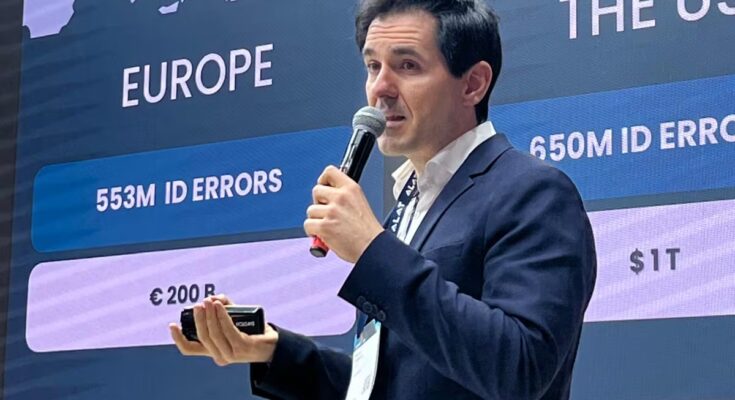We start from the assumption that the medical treatment a patient receives is the one that corresponds to him. But not always. According to the World Health Organization (WHO), the average rate of identification errors in hospitals is approximately 10%, which in many cases is directly related to errors in the administration of care. A context exacerbated by electronic medical records, since a slight spelling change can duplicate the information or transfer it to another patient. These circumstances could fuel the plot of a horror novel even if, unfortunately, they are real. So says Antxon Caballero, founder of Heuristik together with Rubén López. In 2020, he himself confirmed how his grandfather’s nurse mistakenly gave him someone else’s treatment.
“We never think about the risk we run if we need treatment and we don’t bring the documentation with us, since no hospital in the world could identify us. Nor about a possible confusion of medical records or if we have the same name and surname as another patient”, says Caballero.
After speaking with hospitals and realizing that this was a real and obvious problem, they looked for solutions that would help identify patients. They initially tried facial recognition, but it wasn’t feasible. “If you have damage to your face it doesn’t work,” he points out. They then tried fingerprinting, but ran into a new problem. “Until now, if they were dirty, wet or bloody, they weren’t even worth it. But after three years of investigation, we solved the problem.”
They have received various aids, such as those from the Neotec public program; those of MIT (Massachusetts Institute of Technology), in the Masschallenge or with Nvidia. They have also raised €1.3 million through prizes and other grants, and are currently deep in a €1 million round which they will use to grow and internationalize the company.
Now it is possible to identify patients with their fingerprint and its use is simple. “The patient arrives at the hospital and, if he agrees to provide his fingerprint, it is scanned and linked to his medical history. This is of great help, since hospitalization is the place where the most errors are made. The important thing is to generate a database in each centre.”
The co-founder emphasizes that Heuristik respects data protection and that no one is obliged to do so if they do not want to. “Even if a patient is unconscious and fingerprinted, if they don’t want to regain consciousness, it can easily be removed.”
The benefits of using this solution, Caballero claims, are endless. “It reduces hospital costs by eliminating plastic wristbands, which also makes it a sustainable solution. It speeds up patient identification and management processes, reduces fraud and avoids duplication of medical records.” Its first client was the social and healthcare association DYA, and today it already operates in Spain, Germany and Italy. They are in negotiations with several public hospitals and in Portugal they work with the Da Luz hospital network. Among his plans is to arrive in the United States soon.
With 11 employees, last year they had a turnover of 90,000 euros and hope to reach 100,000 this year with new projects, such as the introduction of this solution in border or access control.



